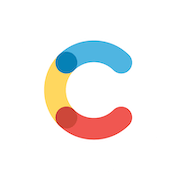In today's fast-paced business environment, the ability to manage content effectively has become more critical than ever before. Mobile devices have become ubiquitous, and employees expect instant access to the information they need, from wherever they are. As a result, businesses are turning to Mobile Content Management Systems (MCMS) to manage, share, and collaborate on content. An MCMS is a powerful tool that helps businesses increase productivity, efficiency, and agility by empowering employees to work from anywhere, at any time. However, with so many options on the market, finding the right MCMS can be a daunting task. In this Mobile Content Management System buyer's guide, we'll explore the different types of MCMS, their features and functionalities, and what to consider when choosing the right one for your business.
What is Mobile Content Management System
Mobile Content Management System (Mobile CMS) refers to a software application designed to help businesses manage their digital content across various mobile platforms. It enables employees to access and manage content easily and securely through their mobile devices, facilitating higher productivity and flexibility. Mobile CMS provides various features such as content creation and publishing, document management, access control, file storage, and mobile collaboration, among others. Moreover, it can be customized to fit a company's specific needs, such as integrating with the existing IT infrastructure or adding specific functionalities. Businesses across various industries can benefit from implementing Mobile CMS. Common use cases include: • Sales Enablement: A Mobile CMS allows sales teams to access marketing materials, product information, presentations, and customer data from their mobile devices, thus enabling them to manage their work remotely. • Field Service: Companies with mobile workforce can use Mobile CMS to access work orders, customer data, project schedules, and other relevant documents. This facilitates efficient decision-making, task management, and coordination between team members. • Content Distribution and Management: A Mobile CMS can be used to create and distribute content across various mobile platforms, manage permissions and workflows, and enforce security policies. This helps businesses ensure that their content is consistent, up-to-date, and delivered to the right audience. • Healthcare: In the healthcare industry, a Mobile CMS can be used to manage patient records, clinical documents, medical research, and healthcare data. This helps improve patient outcomes, streamline workflows, and comply with data security regulations. Types of companies that often use Mobile CMS include those with a mobile workforce, enterprise-level businesses with multiple teams and departments, and those in industries such as healthcare, retail, manufacturing, and finance. In conclusion, Mobile CMS is a valuable tool for businesses that operate on mobile platforms. It offers numerous features and benefits, such as improved productivity, efficient collaboration, and secure content management. Adopting a Mobile CMS can help companies stay competitive, be more agile, and streamline workflows.
Benefits of Mobile Content Management System
In today's fast-paced business environment, it's essential to stay connected with your team and customers at all times. But with employees and customers on the go, you need a way to access and manage your business's content in real-time. That's where a Mobile Content Management System (MCMS) comes in. Here are some of the main benefits of using an MCMS: - Access your content from anywhere: With an MCMS, you and your team can access important documents, files, and data on-the-go from any device, including smartphones and tablets. This means you can stay connected and productive no matter where you are. - Improved collaboration: MCMS allows for easy collaboration between members of your team. You can share files, delegate tasks, and work together seamlessly, even if you're not in the same room. - Increased security: With an MCMS, you can rest easy knowing that your content is safe and secure. You can set up user permissions to restrict access to sensitive data, and remote-wipe lost or stolen devices to prevent unauthorized access. - Better organization: MCMS allows you to organize your content in a way that makes sense for your business. You can create folders, tags, and other organizational features to keep everything in its place and easily accessible. - Increased efficiency: With an MCMS, you can reduce the time it takes to complete tasks. You'll have all the information you need at your fingertips, which means you can respond quickly to customer inquiries, collaborate on projects in real-time, and access data and documents instantly. In conclusion, a Mobile Content Management System is an essential tool for businesses that want to stay efficient and connected in today's fast-paced digital world. Whether you're managing a team, collaborating with clients, or just need to stay organized, an MCMS can help streamline your workflow and improve your bottom line.
Features of Mobile Content Management System
A Mobile Content Management System (MCMS) is an essential tool for managing digital content on mobile devices. Here are ten common features that make MCMS a must-have for businesses of all sizes. 1. Mobile Accessibility: MCMS offers a mobile-centric approach to content management, enabling employees to access and manage content on the go. 2. Secure Data Storage: MCMS ensures secure data storage with encryption and security protocols while enabling access control to prevent unauthorized access. 3. Real-time Collaboration: MCMS enables users to collaborate on content creation and editing in real-time, streamlining communication and enhancing overall productivity. 4. Automated Workflow: MCMS automates workflow processes, such as approvals and publishing, saving time and enhancing efficiency. 5. Content Management: MCMS allows you to manage content for multiple mobile platforms, including iOS, Android, and Windows, while ensuring consistent branding and high-quality content. 6. Analytics: MCMS provides data analytics on content usage, enabling you to measure and optimize your content strategy continually. 7. Centralized Control: With MCMS, you can easily manage multiple content stores and distribute content across your organization with centralized control. 8. Customizable Interface: MCMS offers a customizable interface, enabling users to tailor the system to their specific needs and preferences. 9. Scalability: MCMS is scalable and can handle large amounts of content, allowing businesses to grow and evolve without the need for major system changes. 10. Integration: MCMS can integrate with other business applications and systems, providing seamless connectivity and reducing the complexity of content management. In summary, a Mobile Content Management System provides organizations with numerous benefits, including mobile accessibility, secure data storage, real-time collaboration, automated workflows, content management for different platforms, data analytics, centralized control, customizable interface, scalability, and integration. These essential features make MCMS a must-have tool for businesses seeking to enhance productivity and streamline content management on mobile devices.
Considerations of Mobile Content Management System
Mobile Content Management Systems (MCMS) are becoming increasingly important for businesses as they continue to embrace mobile technology. MCMS allows businesses to easily manage and share content on mobile devices such as smartphones and tablets. With the vast number of MCMS providers in the market, businesses need to carefully consider the following factors before making a purchase decision. 1. Ease of Use: When selecting an MCMS, it's important to ensure that the solution is user-friendly and easy to navigate. The solution should be intuitive enough to enable users with varying levels of technical expertise to manage content without difficulty. 2. Integration Capabilities: Before purchasing an MCMS, it's important to evaluate its compatibility with other systems that the business uses, such as Customer Relationship Management (CRM) systems. Seamless integration with other systems enhances efficiency and reduces manual data entry, thereby increasing productivity. 3. Security: With the rise of cyber threats, it's crucial to consider the security features of an MCMS. The platform must have robust security protocols in place to protect the business's sensitive data and prevent unauthorized access. 4. Customizability: Different businesses have different content needs. A good MCMS should be customizable to suit the unique content requirements of the business. 5. Mobile Compatibility: The selected MCMS must be compatible with different mobile devices, operating systems, and web browsers. This will ensure that users can access and manage content on different devices without compatibility issues. 6. Flexibility: The MCMS should be flexible enough to support different file types, including images, videos, and documents in different formats. 7. Reporting Capabilities: A good MCMS should offer robust reporting capabilities, enabling businesses to keep track of content usage, popular content, and user activity. 8. Scalability: As the business grows, so does its content management needs. The MCMS should be scalable, allowing businesses to add more users and content as required to meet their growing content management needs. In conclusion, selecting an MCMS involves several crucial considerations. Choosing the best solution for your business requires a thorough evaluation of your content requirements, user base, and specific needs. By considering these factors, businesses can make an informed decision and select an MCMS that will help them manage their content efficiently and effectively.
Software Trends for Mobile Content Management System
As mobile technology continues to advance, businesses must keep up with the latest trends in mobile content management systems (CMS). Here are some of the biggest trends to watch for in 2023 and beyond. 1. Increased emphasis on mobile-friendly design: With more and more people accessing content on their mobile devices, it's essential to have a CMS that prioritizes mobile design. This includes responsive design, mobile-specific themes, and mobile app integration. 2. Greater focus on security: As mobile threats continue to evolve, security is becoming an increasingly important consideration for mobile CMS. Look for platforms that offer encryption, two-factor authentication, and other advanced security features. 3. Integration with AI: As AI becomes more commonplace, expect to see more mobile CMS integrating AI capabilities such as chatbots, voice search, and natural language processing. 4. Simplified content creation: One of the biggest challenges businesses face with mobile content is creating content that is easy to consume on a smaller screen. Look for mobile CMS that emphasizes simple content creation and editing, with features like drag and drop tools, templates, and mobile-specific image and video editing. With these trends in mind, businesses can select the right mobile CMS that will allow them to create engaging content that is optimized for mobile devices.






